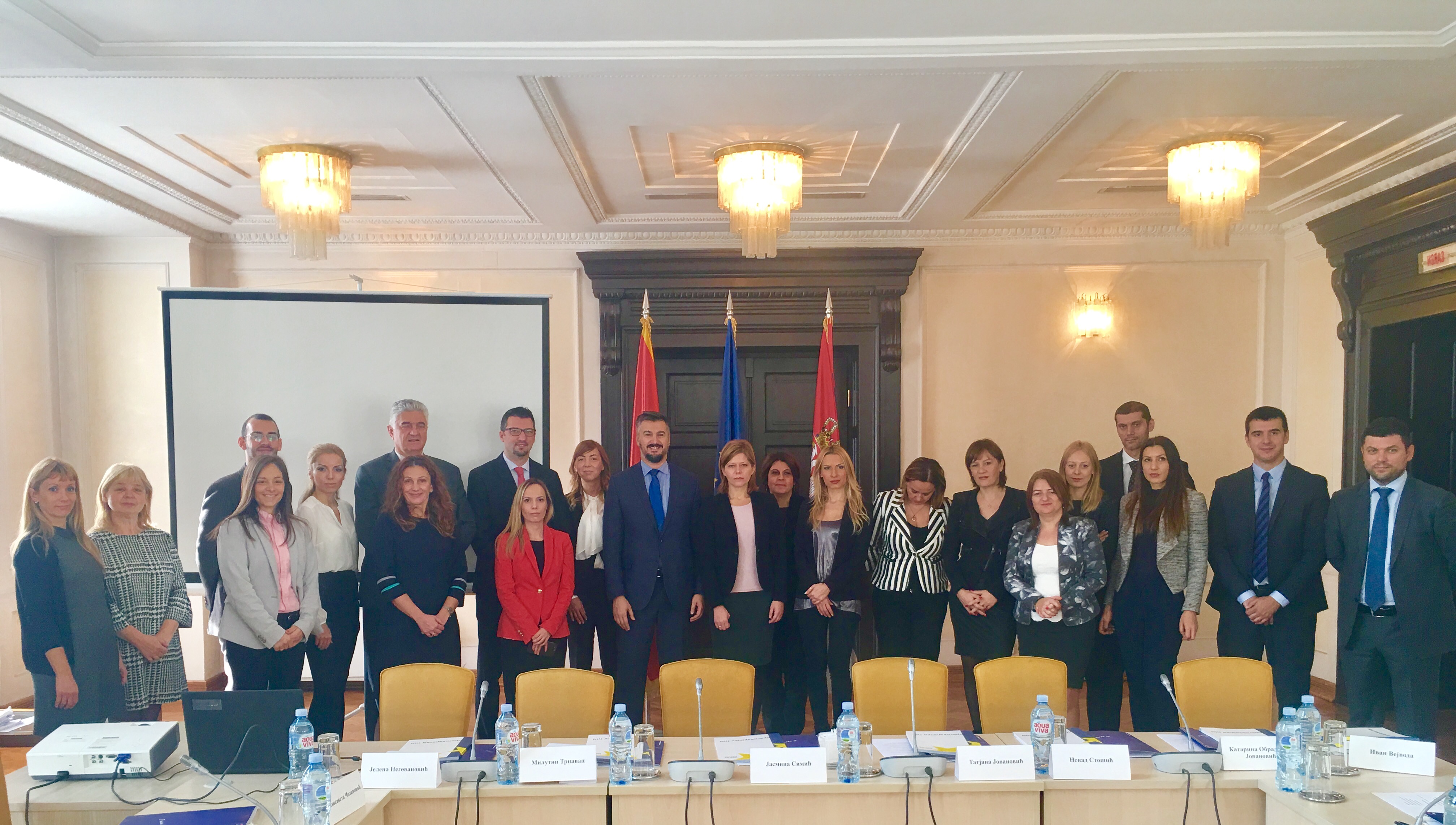



| Friday, 04 November 2016. | |
| Meeting of the Joint Committee for the Implementation of the Cooperation Agreement between the Government of the Republic of Serbia and the Government of Montenegro | |
| + larger fontnormal font- Smaller font |
 The second meeting of the Joint Committee for the Implementation of the Agreement on Cooperation between the Government of the Republic of Serbia and the Government of Montenegro in the context of EU accession was held in Belgrade, today, attended, on behalf of Serbia, by representatives of the European Integration Office, Ministry of Foreign Affairs, the Minister without portfolio in charge of European integration, Ministry of Agriculture and the Environment, Ministry of Justice, Interior Ministry, Ministry of Economy, Ministry of Construction, Transport and Infrastructure, as well as representatives of other institutions of the Government of the Republic of Serbia and Negotiating Team members. The second meeting of the Joint Committee for the Implementation of the Agreement on Cooperation between the Government of the Republic of Serbia and the Government of Montenegro in the context of EU accession was held in Belgrade, today, attended, on behalf of Serbia, by representatives of the European Integration Office, Ministry of Foreign Affairs, the Minister without portfolio in charge of European integration, Ministry of Agriculture and the Environment, Ministry of Justice, Interior Ministry, Ministry of Economy, Ministry of Construction, Transport and Infrastructure, as well as representatives of other institutions of the Government of the Republic of Serbia and Negotiating Team members.On behalf of Montenegro, the meeting was attended by representatives of the Ministry of Foreign Affairs and European Integration, Ministry of Justice, Ministry of Transport and Maritime Affairs, Ministry of Sustainable Development and Tourism, and Negotiating Team members. Ms. Ksenija Milenkovic, Acting Director of the Serbian Government's European Integration Office, underlined the importance of the Republic of Serbia's negotiations on EU accession and its overall reform process, on the national level. Ms. Milenkovic expressed her expectation that the meeting would contribute to the promotion of cooperation between the two countries on their path to EU membership. Presenting Serbia's major results achieved in the negotiating process thus far, Ms. Milenkovic recalled that Serbia had opened four negotiating chapters: Chapter 32 – Financial control, very important in the fight against corruption, and in the financial sector stabilization; Chapter 35 which is specific in the case of Serbia, in relation to negotiations conducted by other candidates, as it deals with monitoring the process of normalization of relations and the agreements reached in the dialogue between Belgrade and Pristina, as well as two major reform chapters: Chapter 23 Judiciary and fundamental rights, and Chapter 24 Justice, Freedom and Security. Highlighting the importance of maintaining the dynamics of the accession process, the Acting Director expressed hope that Serbia would also open Chapters 5 – Public procurement, Chapter 25 – Science and research, and Chapter 26 – Education and culture, before the end of the year. The chief negotiator for the EU accession of Montenegro, Mr. Aleksandar Andrija Pejovic underscored that regular meetings between Serbian, and Montenegrin negotiating teams constituted a valuable contribution to the affirmation of regional cooperation and good-neighborly relations between the two countries. Mr. Pejovic stated that, by opening 24 negotiating chapters, two of which had temporarily been closed; intensive implementation of legislative and institutional frameworks for the fight against corruption and organized crime, and by encouraging further infrastructural development in the Berlin Process framework, Montenegro was acting in the interest of long-term and sustainable socio-economic changes. He pointed out that EU accession was the common objective of the states in the region, adding that progress achieved by any of its neighbors was eventually Montenegrin progress as well. In four working sessions, members of Serbian and Montenegrin negotiation groups for Chapters 14 – Transport policy, 20 – Entrepreneurship and industrial policy, 21 – Trans-European network, 23 – Judiciary and fundamental rights, 24 – Justice, freedom and security, and 27 – Environment, presented the current situation and exchanged experiences based on the negotiating process to date. At the conclusion of the meeting, it was agreed that the third meeting of the Joint Serbia-Montenegro Committee would be held in Montenegro, in 2017. |